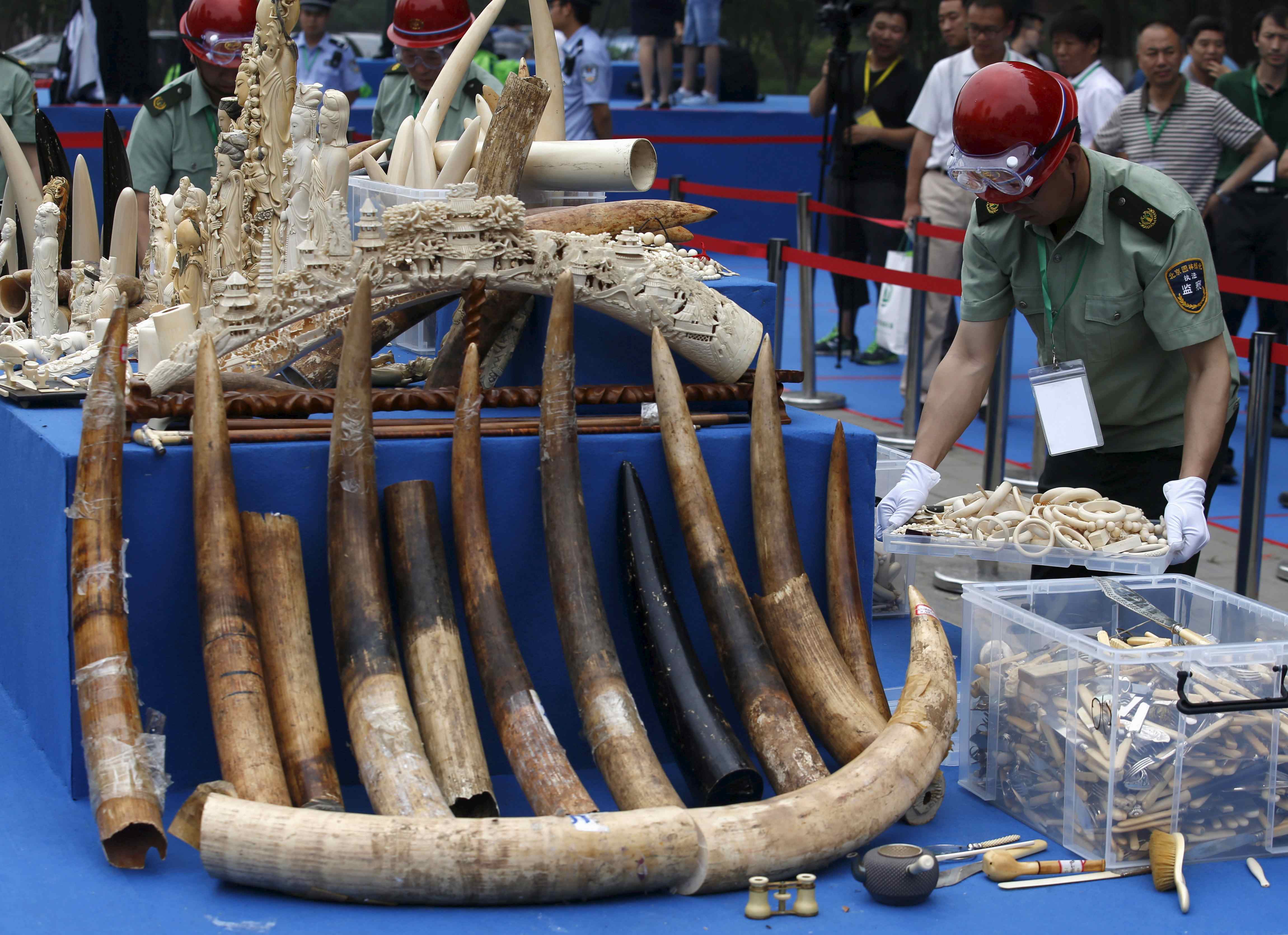A DNA analysis of elephant tusks seized from poachers has revealed two main hotspots for the crime in Africa, a finding that could point law enforcement in the direction of the top criminal networks, a study showed.
The examination involved taking genetic samples from large seizures of ivory and matching them against DNA samples of elephant dung to determine where the animals came from. It showed most elephants killed on a wide scale lived in southern Tanzania and northern Mozambique in East Africa or in a Central Africa region spanning parts of Gabon, Cameroon and the Republic of Congo. The research, published by the Science journal on Thursday, was led by University of Washington biologist Samuel Wasser.
The study has "implications for law enforcement efforts aimed at tackling transnational organized trade in ivory and the increasing poaching of elephants," according to the report.



